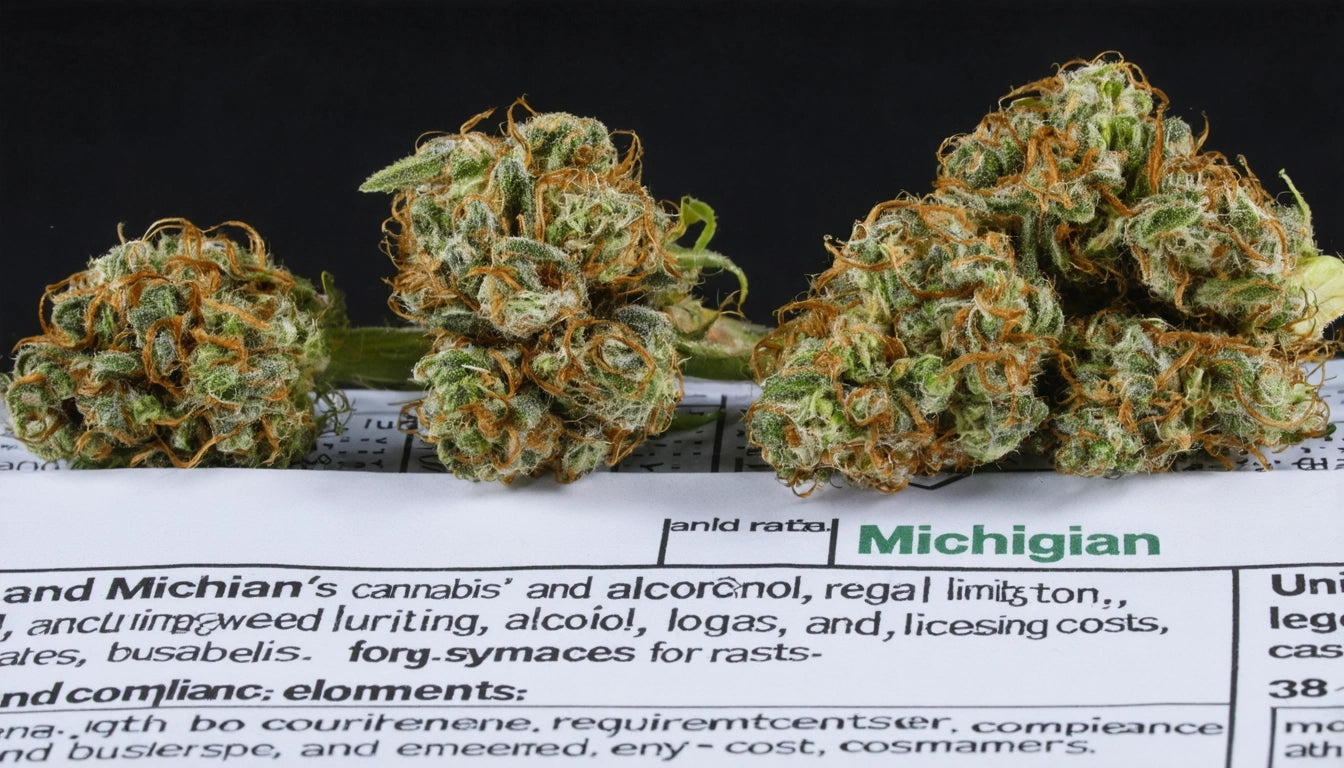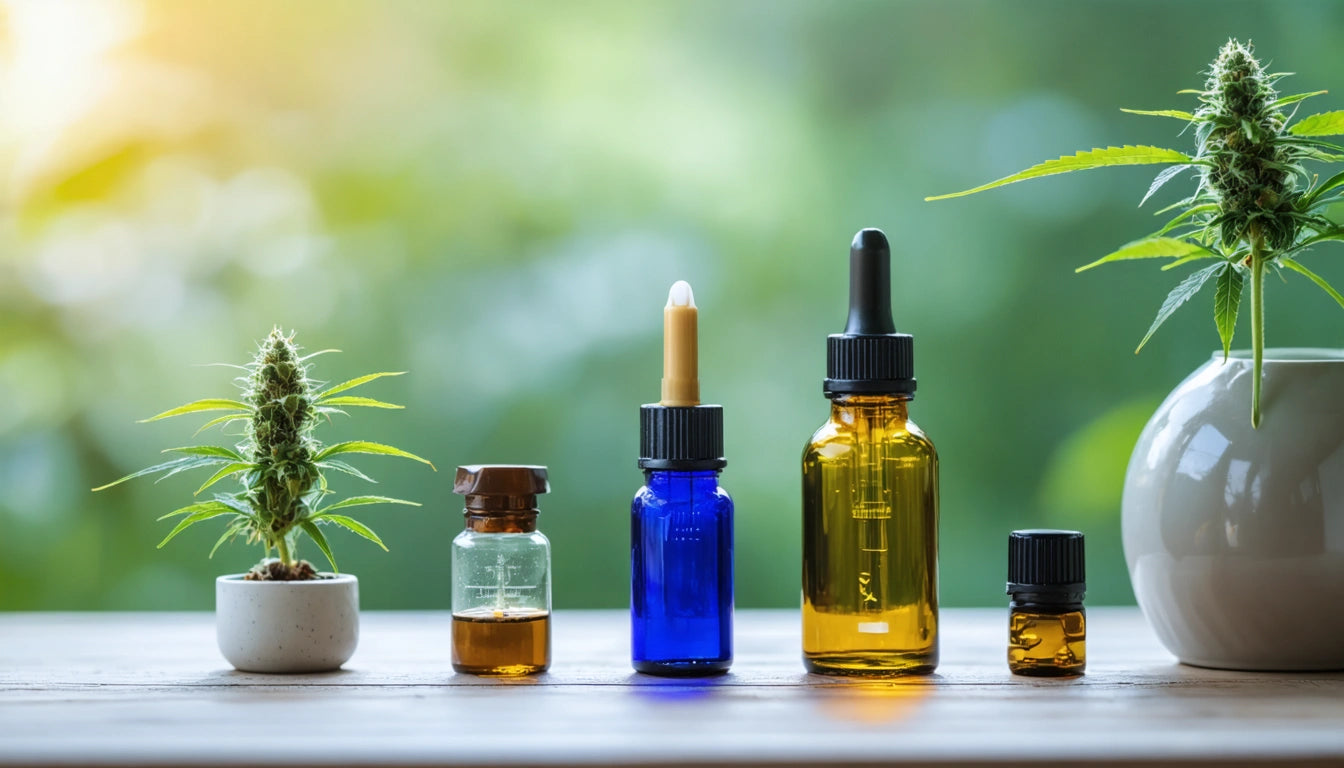Table of Contents
- Michigan Cannabis Possession Limits: What's Legal for Drivers
- Cannabis Taxation in Michigan: Understanding the Rates
- Retail Pricing for Michigan Cannabis Products
- Michigan Liquor Licensing: Costs and Requirements
- Michigan Sales Tax Overview: Cannabis vs. Other Products
- Compliance Strategies for Michigan Cannabis and Alcohol Businesses
Understanding Michigan's Cannabis and Alcohol Regulations: Legal Limits, Taxes, and Licensing Costs
Michigan's regulatory landscape for cannabis and alcohol features distinct frameworks that impact both consumers and business operators. From possession limits to tax structures and licensing fees, understanding these regulations is essential for legal compliance and business planning in these heavily regulated industries.
Michigan Cannabis Possession Limits: What's Legal for Drivers
When it comes to how much weed is legal to drive with in Michigan, the answer requires careful consideration of both possession laws and impaired driving regulations.
For adults 21 and older, Michigan law permits possession of up to 2.5 ounces (71 grams) of cannabis in public places, including in a vehicle. However, this comes with critical stipulations:
- Cannabis must be in a sealed container and inaccessible to the driver while operating the vehicle
- The product must be in the trunk or otherwise not readily accessible from the interior compartment
- There is zero tolerance for driving under the influence of cannabis
As detailed in Michigan's cannabis purchase limits guide, residents can legally possess up to 10 ounces at home, but the 2.5-ounce limit applies when transporting cannabis.
Cannabis Taxation in Michigan: Understanding the Rates
For consumers and businesses asking what is the weed tax in Michigan, the state implements a multi-tiered taxation structure:
- 10% excise tax on retail recreational cannabis sales
- 6% state sales tax (standard Michigan sales tax rate)
- No excise tax on medical cannabis (only the 6% sales tax applies)
This means recreational consumers effectively pay 16% in total taxes on their purchases. According to Michigan's cannabis regulation overview, this tax structure has generated substantial revenue for the state, with funds allocated to education, infrastructure, and local governments where cannabis businesses operate.
For businesses that process cannabis products, having the right equipment is essential for quality control and compliance. Many Michigan processors use commercial-grade grinding equipment to ensure consistent product quality while meeting state regulatory standards.
Retail Pricing for Michigan Cannabis Products
When consumers ask how much is weed in Michigan, prices vary significantly based on:
- Product type (flower, concentrates, edibles, etc.)
- Quality tier and potency
- Geographic location within the state
- Medical vs. recreational market
As of recent market data, average retail prices in Michigan range from:
- Flower: $25-60 per eighth (3.5 grams)
- Pre-rolls: $8-15 per unit
- Concentrates: $30-80 per gram
- Edibles: $15-25 for 100mg THC products
Michigan's competitive market has led to price compression compared to neighboring states with newer cannabis programs, as highlighted in the regional cannabis brand comparison.
Michigan Liquor Licensing: Costs and Requirements
For entrepreneurs asking how much is a Michigan liquor license, costs vary substantially based on license type:
- Class C (on-premises consumption): $600 state fee plus $20,000-$60,000 market value
- SDM (beer/wine off-premises): $100 state fee plus $15,000-$35,000 market value
- SDD (spirits off-premises): $150 state fee plus $15,000-$50,000 market value
- Brewpub: $100 state fee plus local fees
The Michigan Liquor Control Commission (MLCC) issues a limited number of licenses based on population quotas, creating a secondary market where license values can significantly exceed base fees. Unlike cannabis licenses, which are issued directly by the state, liquor licenses often trade on the open market between businesses.
Michigan Sales Tax Overview: Cannabis vs. Other Products
Understanding what is the Michigan sales tax rate is straightforward for most products: the state imposes a flat 6% sales tax on retail transactions. However, special categories have unique treatment:
- Standard goods and services: 6%
- Recreational cannabis: 6% sales tax + 10% excise tax
- Medical cannabis: 6% sales tax only
- Alcohol: 6% sales tax + specific liquor taxes
- Tobacco: 6% sales tax + tobacco taxes
- Groceries: generally exempt from sales tax
- Prescription medications: exempt from sales tax
For cannabis businesses, proper accounting for these different tax obligations is crucial for regulatory compliance and financial planning.
Compliance Strategies for Michigan Cannabis and Alcohol Businesses
Businesses operating in Michigan's regulated cannabis and alcohol sectors must navigate complex compliance requirements to maintain their licenses and avoid penalties. Key strategies include:
- Implementing robust inventory tracking systems that integrate with state monitoring platforms
- Maintaining detailed records of all transactions and tax payments
- Conducting regular staff training on regulatory requirements and updates
- Engaging compliance specialists or consultants for periodic audits
- Staying informed about regulatory changes through industry associations
As the comprehensive guide to cannabis business costs notes, compliance expenses should be factored into business planning from the start, as they represent ongoing operational costs rather than one-time investments.
Michigan's regulatory framework continues to evolve as the market matures, with potential changes to tax structures, possession limits, and licensing requirements possible in coming years. Businesses and consumers should stay informed through official state resources and industry publications to ensure ongoing compliance.











Leave a comment
All comments are moderated before being published.
This site is protected by hCaptcha and the hCaptcha Privacy Policy and Terms of Service apply.